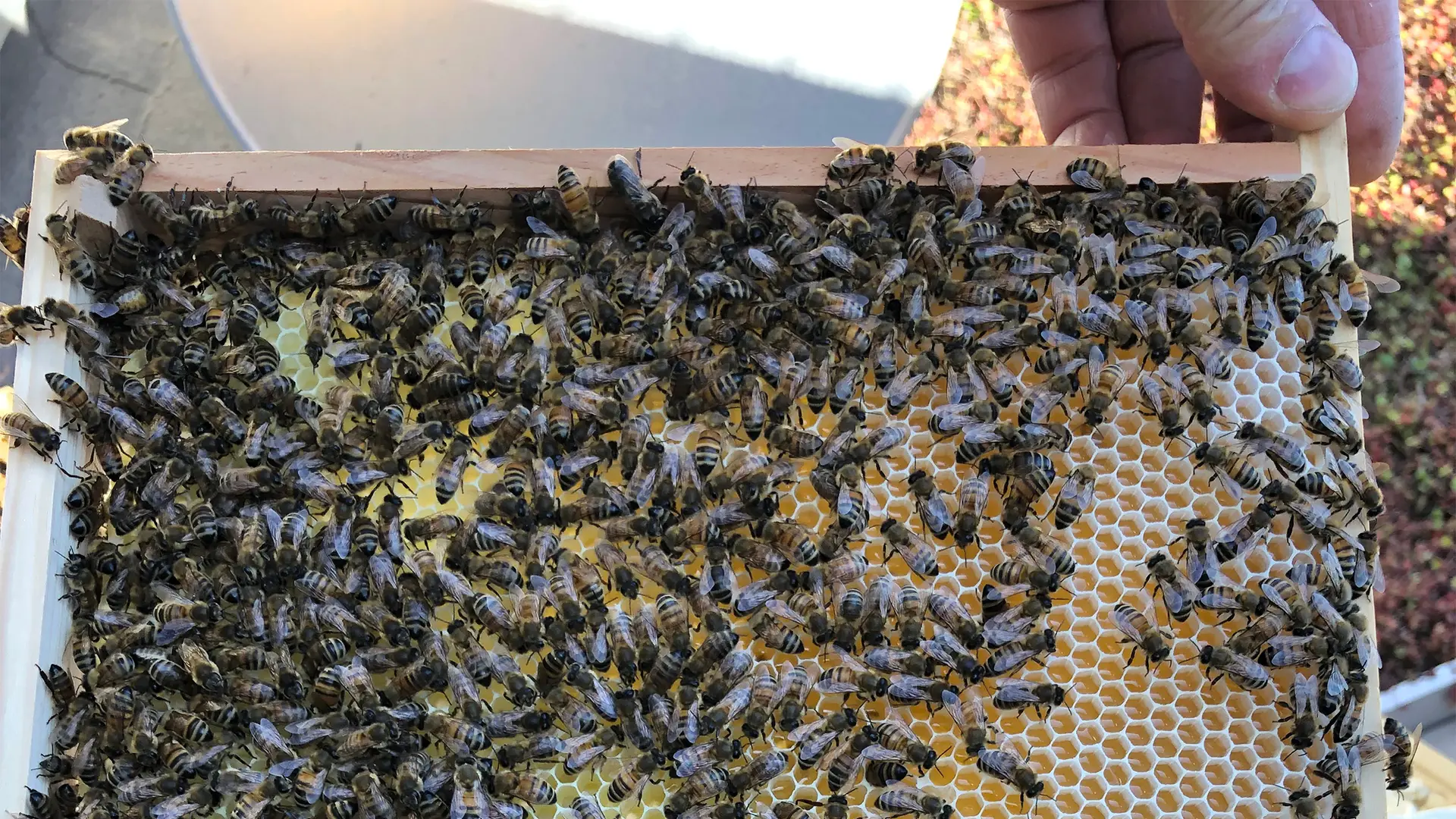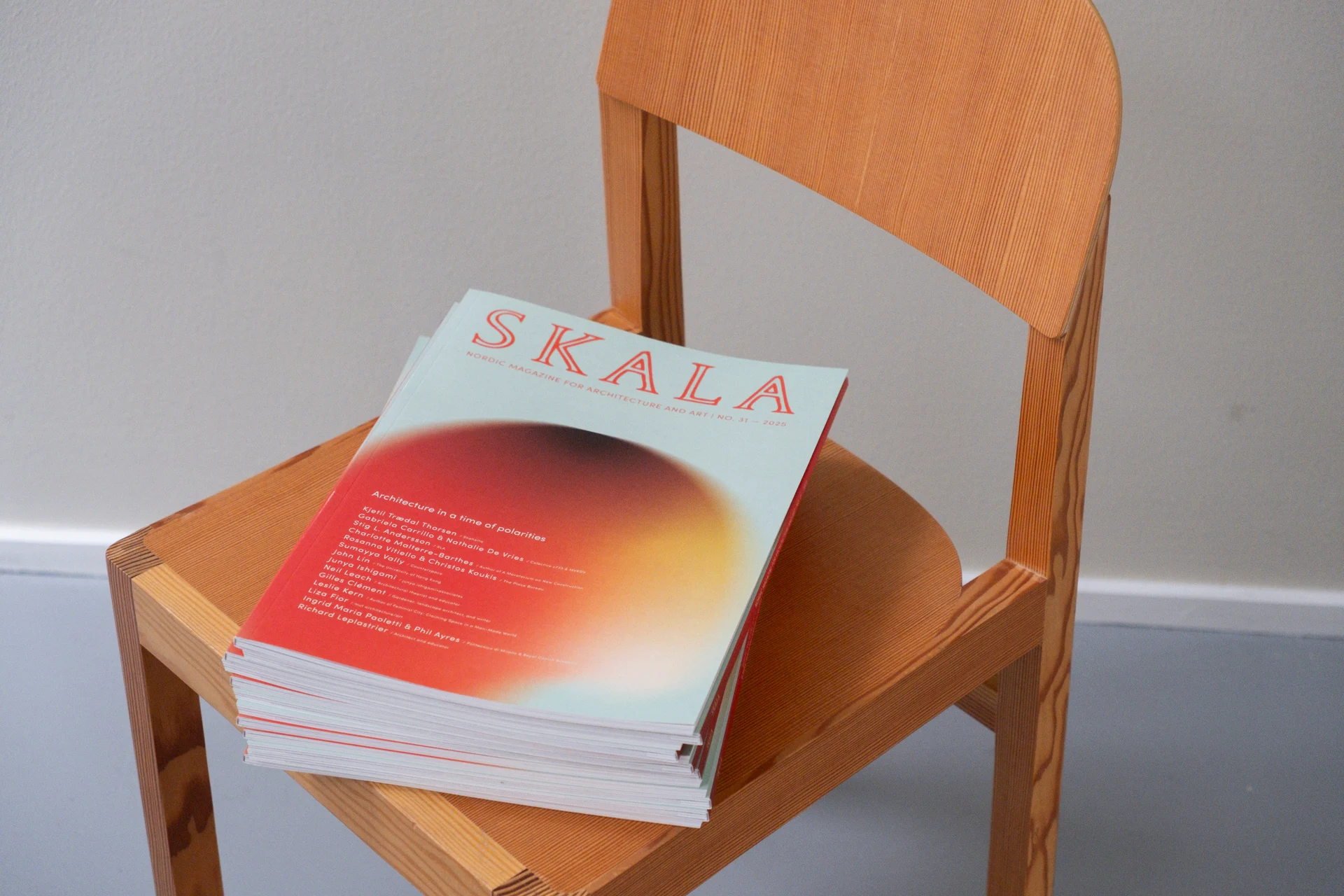High season for our honeybees puts focus on urban biodiversity

Across Copenhagen, millions of bees help keep the city’s natural life thriving. Our hive of 55,000 keeps us abuzz over urban biodiversity in the built environment.
June brings a new life to Copenhagen. From sunny park picnics to waterfront leisure, urban life is in full bloom. But perhaps less visible is the surge of activity throughout the city’s beehives – a number of which call the rooftop of Henning Larsen home.
Summertime marks the high season for honeybees: Warm weather, peak pollen levels, and longer days give bees more opportunity for pollen collection and honey production. At this time of year, bee colonies reach a peak population of young worker bees, and the hive is at its most active.
Across Copenhagen, some millions of bees are hard at work in their daily routines. Domesticated hives across the city play a key role in supporting urban biodiversity: The little pollinators help maintain the vibrant green life of Copenhagen’s parks and gardens, in turn preserving the habitat and food sources of other urban insects, mammals, and birds. The average forager bee can visit anywhere from 50 to 1000 flowers in a single trip and makes between seven and 14 trips each day. Henning Larsen’s hive of some 55,000 bees, then, accounts for hundreds of thousands of pollinated flowers across Copenhagen every day.
In addition to their benefit to local biodiversity, the bees give a great benefit to the beekeepers: Honey. Each hive’s honey is unique to its surroundings, an expression of the plant life within the hive’s radius. A Vesterbro hive’s honey, for example, may have a different flavor than honey from Amager. If the environmental benefits aren't rewarding enough, then there’s always the promise of fresh honey. The office’s bee-enthusiasts recently led the season’s first harvest, checking in on the health of the two families as they went. Halfdan Trolle, part of Henning Larsen’s beekeeping team, says that the team has collected some 30 kilograms of honey so far, with the potential to collect more later in the season.
“For me, beekeeping is such a nice way of reminding yourself how important bees, and insects in general, are to the integrity of our ecosystem,” Trolle says.
“It’s a worthwhile perspective to watch the bees build such a fascinating society, with its own organization and unique physical structure, and to think that they’ve been doing this for millions of years.”
In the urban environment, it can be easy to lose touch with the natural world. Bees give us more reason to connect with the changing seasons and local climate and a more active understanding of how biodiversity exists in the built environment.



